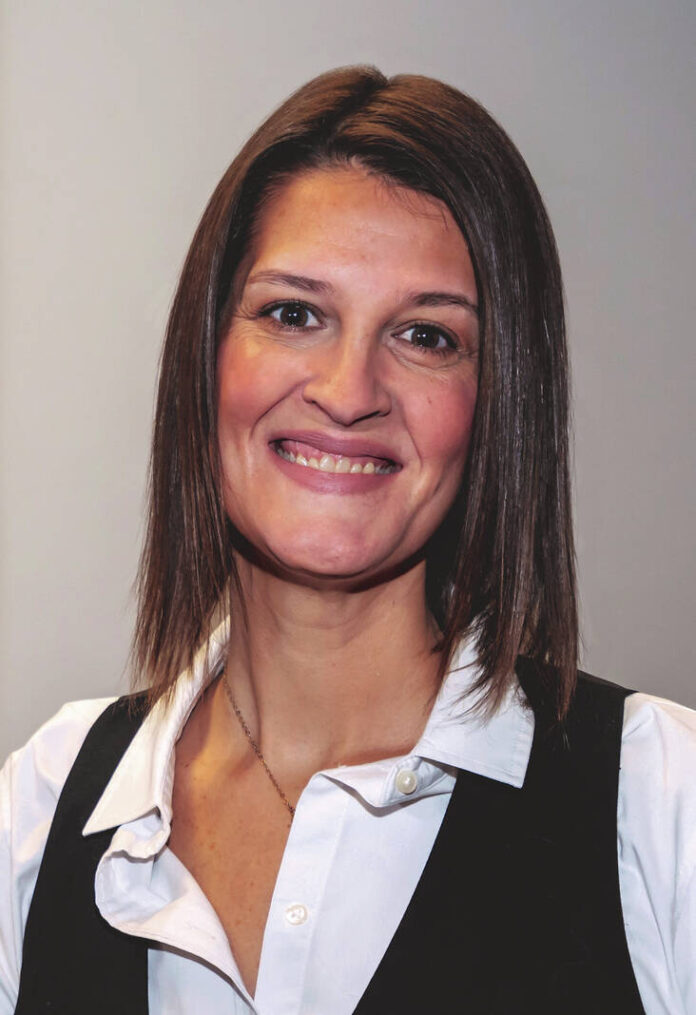County officials have restructured court services to better serve offenders and the justice system.
Probation and Community Corrections are now under one department — Johnson County Court Services — with Angela Morris serving as director and chief probation officer. The merger was needed to reduce redundancies between the departments and streamline what the courts do daily, said Brandi Foster Kirkendall, court administrator.
The changes were made official earlier this month, making the county one of 33 that are going through the process or have already done so. The origins of the change date back to 2019, when Morris and adult assistant chief probation officer Steve Kermode were appointed to the adult probation office, Morris said.
“Once getting involved in the adult system, we quickly learned that community corrections and probation do some of the same functions,” she said. “In our minds, it made sense for both to be under the court’s umbrella so we could share resources, like programming and field officers. That’s what led us to talking to the judges and the (community corrections) advisory board to have this happen.”
The county’s community corrections department was created about 30 years ago and is overseen by a community corrections advisory board, a statutory requirement from the state of Indiana. The board is made up of 25 or so people, including the county sheriff, prosecutor, judges, probation, a public defender, the mayor of the county’s most populous city and a victim and an ex-offender, or their designates. A representative from both the Johnson County Council and Johnson County Board of Commissioners also serve on the board, Kirkendall said.
Community corrections was fine functionally, but over the last several years, officials noticed a lot of overlap between corrections and probation. For example, both departments supervise offenders and offer programming. Last May, officials started looking at creating a combined department under the direction of the courts, both Kirkendall and Morris said.
Under the new department, the juvenile assistant chief probation officer, adult assistant chief probation officer and director of community corrections report to the court services director and deputy director. The director will report to the courts, and the director of community corrections will report to both the community corrections advisory board and court services director, county documents show.
The changes will streamline the department and give community corrections more structure and support, both administrative and for supervision. Under the new department, it is easier for corrections and probation to share field officers and programming staff. Also, probation currently has has a full-time therapist. Eventually, Morris wants the therapist to oversee programming at community corrections, officials said.
“It was something that made sense to us. In the long-run, we hope it will save us money,” Kirkendall said.
Both departments will also share a policy procedure manual, Morris said.
Additionally, the changes will improve communication between the departments and the courts. Previously, officials often saw offenders communicating with both corrections and probation, but there was no communication between the departments. With the changes, this will not happen anymore, making communication easier for judges and court officials, Kirkendall said.
“Now we can ask one person for an answer instead of having to go to two departments,” she said.
The changes will also help the county’s problem-solving courts. Both corrections and probation are crucial for these courts, so having a single department with one director is easier compared to before, she said.
“(The new department) is really exciting for me. It opens a lot of doors for us,” Kirkendall said.
Since the changes took effect, the staff at community corrections has been reinvigorated and welcomed the change. Both departments are still technically separate, functioning departments, with Morris and Kermode overseeing them, she said.
“Since day one, we have felt that it’s positive for both departments,” Morris said. “It’ll make it more efficient — more efficient for the offenders, more efficient for the court system and more efficient for the supervision.”
Reactions throughout the county’s justice system have been positive so far, too. The new department have received unwavering support, she said.
“These are people who have offended and we all work with them and want them to succeed in being productive individuals in society,” Morris said. “The more people that are working toward the same goal with the same people gives us an opportunity for better results.”





